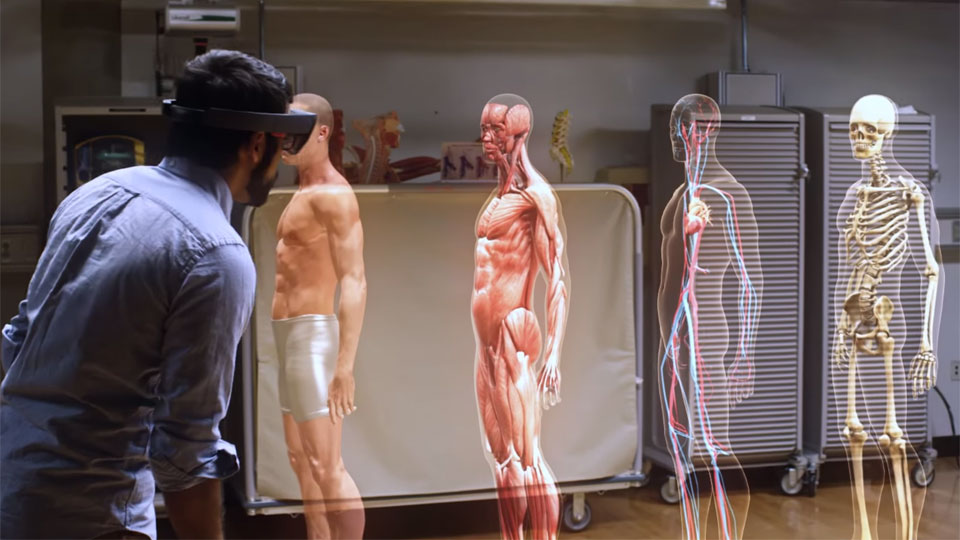According to many high-tech futurists and innovation experts, AR (augmented reality) will be one of the biggest emerging technologies in 2016. It could even eliminate smart phones, displays, and screens within 10 years.
I am fascinated by new technologies and I think we are living in the most exciting time in history. However, while these new technologies can solve a lot of problems, they cannot help with some of the most fundamental human ones.
To resolve these fundamental problems, you can augment your reality by mastering some personal development skills which you already possess.
In this article I will show how you can solve some human issues by augmenting your own reality without technology, and by doing so you will also augment your level of fulfillment and happiness.

What is augmented reality?
AR is a live direct or indirect view of a physical, real-world environment whose elements are augmented (or supplemented) by computer-generated sensory input such as sound, video, graphics, or GPS data. By projecting a digital layer of information on top of our personal reality, AR gives us the ability to enhance what we see. In short, it’s virtual images on top of the real world.
Despite the failure of Google Glass to evolve into a mainstream consumer gadget, upcoming augmented reality devices like Microsoft’s HoloLens, which combines virtual objects with the real world through high-tech glasses, are forecasted to become a 120 billion dollar business by 2020 (Fortune, April 25, 2015). The technology is so promising that Magic Leap, a start-up with no product and no customer yet, just received $1.3 billion in funding.
Augmented reality will be wearable and it has the potential to play the same role in our lives as smart phones, which has hundreds of millions of users.
Problems AR won’t fix
Although I am really excited and looking forward to see what AR augmented reality will bring into our lives, it won’t help you resolve the following issues:
- Becoming a better leader in your own life (being responsible, and finding direction and vision)
- Relationship problems
- Emotional issues
- Financial issues
- Bad decision-making
Just think about it for a second.
If you have a communication problem with your wife or your children, you won’t use your cell phone to resolve them. You need to communicate. And if you are not good at it, you will need to learn how to be.
No technology will help you manage your emotions nor improve your capacity to make good decisions or help you restrain yourself from throwing money out the window. No technology will help you become a responsible human being.
Take Google Glass for instance. Wouldn’t it be more important to see and understand the reality you live in by applying the leadership skill of awareness or by using mindfulness in your life, rather than having a device which gives you access to all kinds of stuff through AR?
Mindfulness means maintaining a moment-by-moment awareness of our thoughts, feelings, bodily sensations, and surroundings.
This ability has been described scientifically. Research as shown that a person who practices mindfulness is more resilient, better able to live in the present moment and focus on the current activity, more able to create, open to all comments they receive, better at handling stressful situations, more prone to happiness, and has a greater sense of personal effectiveness.
Therefore, mindfulness is a form of augmented reality.
How can we augment our reality even if the technology isn’t there yet?
In my quest to understand the links between the evolution of humans and the evolution of technology, I have reflected on what we could learn from AR.
I began by looking at the definition of “augmented”. According to dictionary, it is:
“Added to or made greater in amount or number or strength.”
And then I asked myself:
How can we augment our reality?
I realized that what we do in coaching is to help human beings augment their reality. We augment their awareness of who they are and what they can accomplish. We connect them with the things that matter by augmenting their focus.
Which skills are required to augment your reality and achieve success?
In my series of articles “TECHNOLOGY: SAVE US FROM OURSELVES! How Lessons Learned From Old Technologies Can Be Applied To Our Personal Development” (see links below), I have identified a list of personal development skills that can make a big difference.
Mastering those skills can have a big positive impact on your life. Mastering them will augment your reality , your efficiency and your effectiveness.
These skills will be useful for both work and your personal life.
Here is the list:
- Leadership (Responsibility, Awareness, Values, Vision, Mission, Goals)
- Emotional Management
- Decision-Making
- Communication (this will determine the quality of your relationships at work and in your personal life)
- Time Management
- Financial Management
Mastering these skills–isn’t it augmenting your reality?
If you master these skills, you will augment your success and your happiness.
There is no doubt that augmented reality will bring benefits for human beings and I can’t wait to see it. However, it won’t solve basic human issues. On the other hand, augmenting your reality by increasing your mindfulness and your mastery of the skills of personal development will enhance your human experience much more than any new technologies. As a human being, it would only make sense to try to master the skills that can make you better.
If you liked this article, you will also enjoy the following:
https://dussaultexpert.com/en/technology-save-us-from-ourselves-article-1-introduction/
https://dussaultexpert.com/en/technology-save-us-from-ourselves-article-2-photography/
https://dussaultexpert.com/en/technology-save-us-from-ourselves-article-3-electricity/
https://dussaultexpert.com/en/technology-save-us-from-ourselves-article-4-phonograph/
I have recently started a website, the information you provide on this website has helped me greatly. Thank you for all of your time & work.
Excellent article Pierre.
thanks Steve!